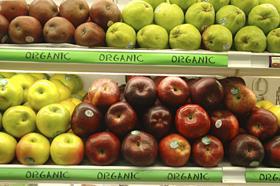
The draft EU Organic Regulation is a “missed opportunity” that “hasn’t grasped the chance it had to be a better document”, according to a senior figure within the Soil Association.
Sarah Hathaway, technical manager at Soil Association Certification, told an organic trade event last week that discussions around the new regulation had been “the longest in the history of the EU” at five years and counting, with no end yet in sight. She said the draft failed against key aims such as reducing obstacles for new entrants, though there was some positive news with the removal of proposals for trace MRLs.
The draft was published several weeks ago, but 17 states voted against it, she said. A new text is due for release this week and is expected to be closely scrutinised by stakeholders. “We do think this regulation will be pushed through one way or another, and we have an opportunity to feed into whatever is published so it works for the UK market,” she said.
Meanwhile, Hathaway reported on the recent introduction of the EU’s TRACES (Trade Control and Expert System), which went live in April and will be required for all EU organic imports from October. She said the system was “not working brilliantly at the moment” but is due an update soon.
Hathaway also said there was ongoing concern among growers about the withdrawal of authorisation for the use of copper on all crops except grapes, which took effect from 1 January. Emergency authorisation was secured for apples, pears and potatoes, but there are fears over what growers will do once that expires.
A meeting is set for Defra, HSE and AHDB for 13 July to discuss plans and actions, she said, but she warned: “Some topfruit growers said they’d pull out of UK organic production if copper or an alternative is not available.”



